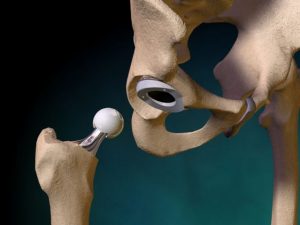 Hip replacement surgery has long been used to treat hip arthritis in elderly patients. However, concerns arise when a patient in his 40s, 50s, or younger, has severe arthrtis that is not relieved with non-operative treatments. Once reserved for elderly patients, hip replacement surgery is now becoming more common in the younger, active population.
Hip replacement surgery has long been used to treat hip arthritis in elderly patients. However, concerns arise when a patient in his 40s, 50s, or younger, has severe arthrtis that is not relieved with non-operative treatments. Once reserved for elderly patients, hip replacement surgery is now becoming more common in the younger, active population.
How Young is Too Young?
No one can definitively answer this question, but what we do know is that the benefits of performing hip replacement surgery in younger patients may outweigh the risks of surgery. The benefits are primarily pain reduction, quality of life, and maintaining proper fitness. The primary problem in performing hip replacement surgery in the young patient is the concern of wearing out the implant. Developments in manufacturing have sought to reduce the magnitude of this problem, but it is a concern. Furthermore, the amount of wear to a hip replacement is related to the activity level of the patient. As you might expect, the usual activities of the average 30 year old are different from the average 80 year old. Therefore, I always recommend young patients with joint replacements to be cautious.
What Are the Results of Hip Replacement in Young Patients?
The results of hip replacement in patients younger than 50 years of age is not as good as it is in older patients. However, these studies show that almost 90% of implants are still functioning 10 years after surgery, and more than 60% are still working after 15 years. We know that the younger age you have a hip replacement, the more likely it is to wear out quickly. What we do not know is how newer implants may affect the longevity of a hip replacement. Most studies to date looking at how long hip implants last are evaluating traditional metal and plastic replacements. Newer implants made of all metal, or ceramic have shown better results in laboratory testing.
I always advise my younger patients to be cautious of their activity level, and the possibility of a second surgery sometime in their life.
